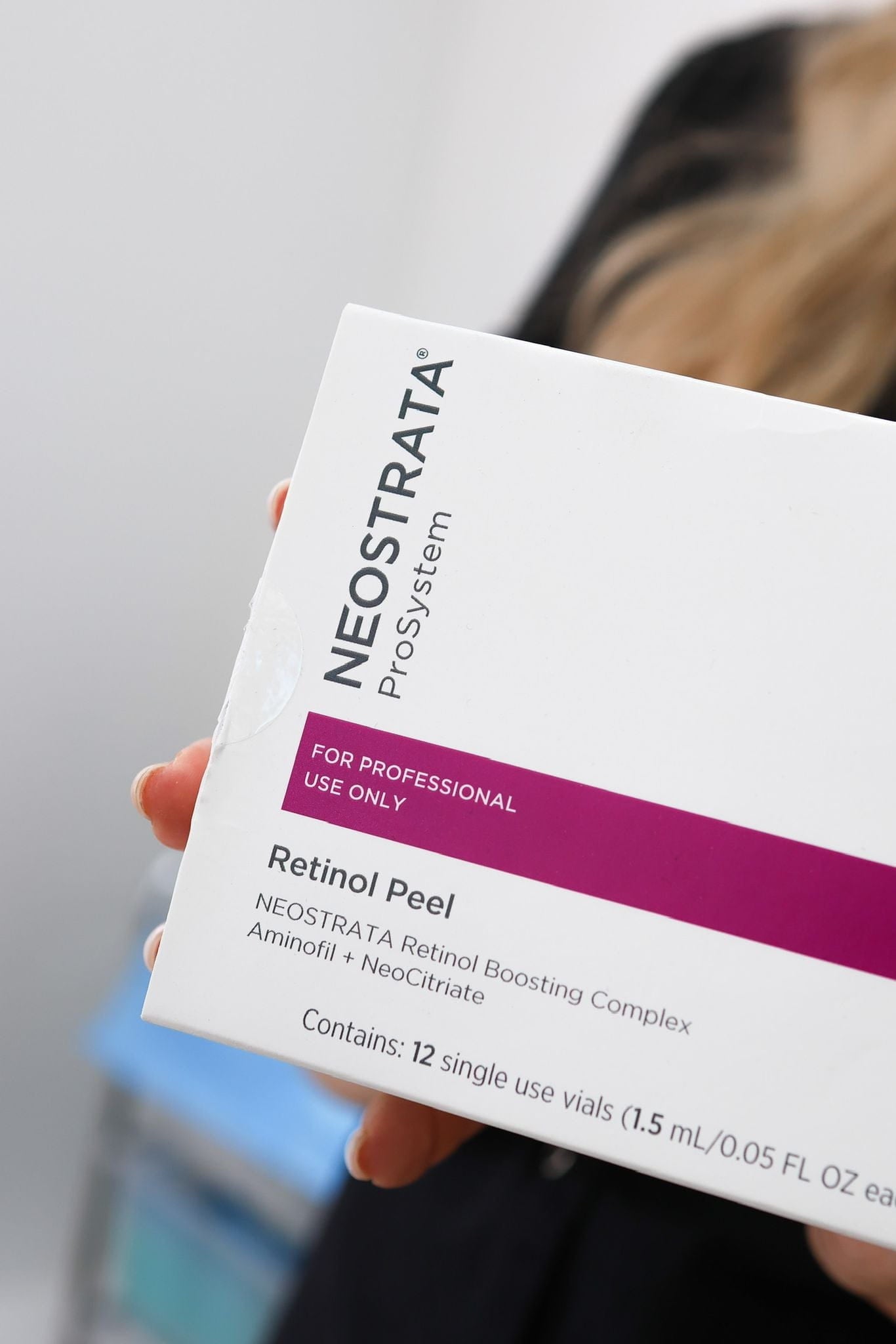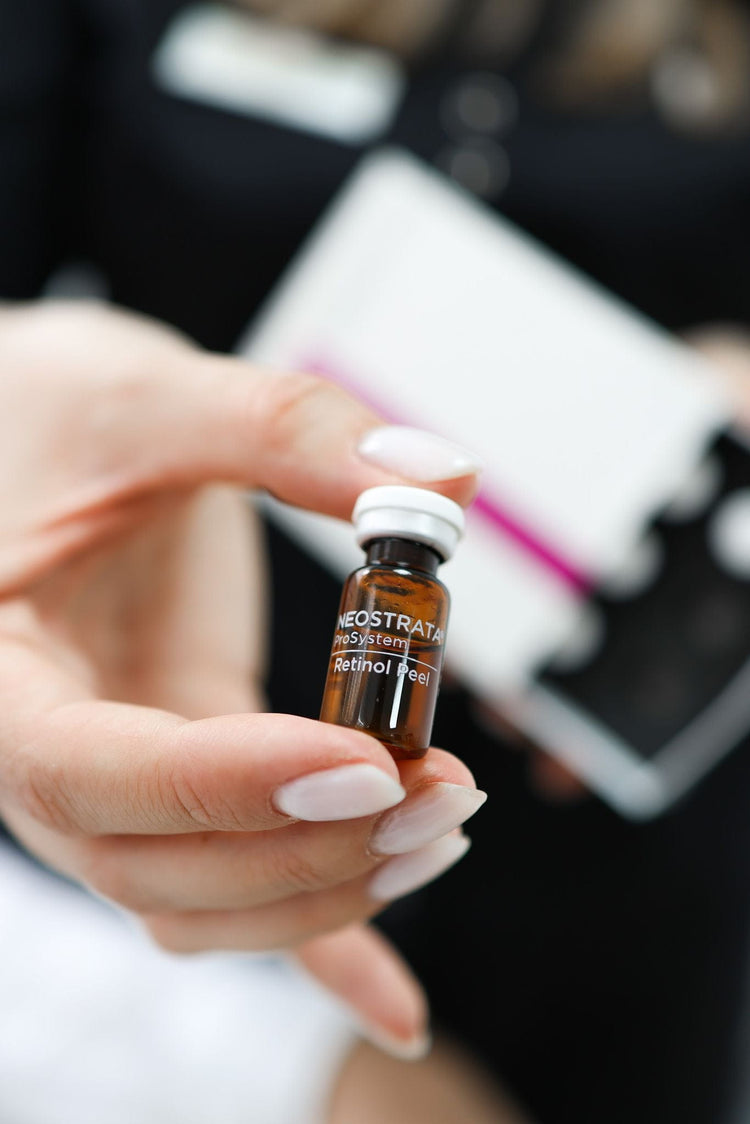Retinol Peel Risks for Sensitive Skin
Retinol peels can offer significant benefits for skin rejuvenation, but their potent nature poses potential risks for those with sensitive skin. Individuals in Kingston Upon Thames who are considering retinol peels must carefully weigh the potential rewards against these risks.
Common Reactions
Sensitive skin tends to react more strongly to ingredients like retinol, making retinol peels potentially risky. Common reactions can include redness, irritation, dryness, peeling, and even burning sensations. These reactions can be uncomfortable and may worsen existing skin conditions.
It’s crucial for individuals with sensitive skin in Kingston Upon Thames to consult a dermatologist before undergoing a retinol peel. A dermatologist can assess the individual’s skin type and condition, determine the appropriate strength of retinol, and advise on potential risks and aftercare procedures.
Allergic Reactions
Retinol peels can offer significant benefits for skin rejuvenation, but their potent nature poses potential risks for those with sensitive skin. Individuals in Kingston Upon Thames who are considering retinol peels must carefully weigh the potential rewards against these risks.
Sensitive skin tends to react more strongly to ingredients like retinol, making retinol peels potentially risky. Common reactions can include redness, irritation, dryness, peeling, and even burning sensations. These reactions can be uncomfortable and may worsen existing skin conditions.
It’s crucial for individuals with sensitive skin in Kingston Upon Thames to consult a dermatologist before undergoing a retinol peel. A dermatologist can assess the individual’s skin type and condition, determine the appropriate strength of retinol, and advise on potential risks and aftercare procedures.
Long-Term Effects
Retinol peels can offer significant benefits for skin rejuvenation, but their potent nature poses potential risks for those with sensitive skin. Individuals in Kingston Upon Thames who are considering retinol peels must carefully weigh the potential rewards against these risks.
Sensitive skin tends to react more strongly to ingredients like retinol, making retinol peels potentially risky. Common reactions can include:
- Redness
- Irritation
- Dryness
- Peeling
- Burning sensations

These reactions can be uncomfortable and may worsen existing skin conditions.
It’s crucial for individuals with sensitive skin in Kingston Upon Thames to consult a dermatologist before undergoing a retinol peel. A dermatologist can assess the individual’s skin type and condition, determine the appropriate strength of retinol, and advise on potential risks and aftercare procedures.
Finding a Suitable Retinol Peel for Sensitive Skin in Kingston Upon Thames
Retinol peels are known for their ability to rejuvenate the skin, but individuals with sensitive skin in Kingston Upon Thames should proceed with caution. The potent nature of retinol can lead to adverse reactions in sensitive skin, potentially causing redness, irritation, dryness, peeling, and even burning sensations.
Dermatologist Consultation
Retinol peels are known for their ability to rejuvenate the skin, but individuals with sensitive skin in Kingston Upon Thames should proceed with caution. The potent nature of retinol can lead to adverse reactions in sensitive skin, potentially causing redness, irritation, dryness, peeling, and even burning sensations.
It’s crucial for those with sensitive skin to consult a dermatologist before undergoing a retinol peel. A dermatologist can assess the individual’s skin type and condition, determine the appropriate strength of retinol, and advise on potential risks and aftercare procedures to minimize the chances of adverse reactions.
Product Research and Patch Testing
Retinol peels are known for their ability to rejuvenate the skin, but individuals with sensitive skin in Kingston Upon Thames should proceed with caution. The potent nature of retinol can lead to adverse reactions in sensitive skin, potentially causing redness, irritation, dryness, peeling, and even burning sensations.
It’s crucial for those with sensitive skin to consult a dermatologist before undergoing a retinol peel. A dermatologist can assess the individual’s skin type and condition, determine the appropriate strength of retinol, and advise on potential risks and aftercare procedures to minimize the chances of adverse reactions.
When researching retinol peels in Kingston Upon Thames, consider these factors:
- Ingredients: Look for peels with gentle ingredients that are less likely to irritate sensitive skin.
- Retinol concentration: Start with a low concentration of retinol and gradually increase it as tolerated.
- Clinic reputation: Choose a reputable clinic with experienced estheticians who understand the needs of sensitive skin.
Before committing to a peel, perform a patch test on a small area of your skin to assess your reaction to the product. If you experience any adverse reactions, discontinue use and consult with a dermatologist.
Professional Treatments vs. Home Use
Retinol peels are known for their ability to rejuvenate the skin, but individuals with sensitive skin in Kingston Upon Thames should proceed with caution. The potent nature of retinol can lead to adverse reactions in sensitive skin, potentially causing redness, irritation, dryness, peeling, and even burning sensations.

It’s crucial for those with sensitive skin to consult a dermatologist before undergoing a retinol peel. A dermatologist can assess the individual’s skin type and condition, determine the appropriate strength of retinol, and advise on potential risks and aftercare procedures to minimize the chances of adverse reactions.
Retinol peels are a professional treatment best administered by licensed estheticians or dermatologists in reputable clinics within Kingston Upon Thames. While home-use retinol products exist, they often contain lower concentrations of retinol and may not be as effective or safe for sensitive skin.
Professionally applied retinol peels allow for precise control over the strength and application technique, minimizing the risk of irritation and maximizing results. The expertise of a trained professional ensures proper aftercare instructions are provided, which is crucial for sensitive skin to minimize potential complications.
Alternatives to Retinol Peels for Sensitive Skin
While retinol peels offer numerous benefits for skin rejuvenation, sensitive skin types require a more cautious approach. Individuals in Kingston Upon Thames with sensitive skin should carefully consider the potential risks associated with retinol peels before undergoing the treatment.
Gentle Exfoliants
For those with sensitive skin in Kingston Upon Thames who are seeking gentler alternatives to retinol peels, there are several options available:
Gentle exfoliants like lactic acid, glycolic acid, and enzymes can help remove dead skin cells and brighten the complexion without causing excessive irritation.
These acids work by dissolving the bonds between dead skin cells, allowing them to be easily shed. Start with a low concentration and gradually increase it as tolerated.
Another option is to use chemical exfoliants containing AHAs or BHAs. Alpha-hydroxy acids (AHAs), such as lactic acid and glycolic acid, are water-soluble and work on the surface of the skin. Beta-hydroxy acids (BHAs), like salicylic acid, are oil-soluble and can penetrate deeper into pores to help unclog them.
Physical exfoliants, such as scrubs with finely ground particles or soft brushes, can also be beneficial for sensitive skin. However, it’s important to use these gently and avoid harsh scrubbing, which can cause irritation.
Always moisturize well after any type of exfoliation to help maintain the skin’s hydration barrier.
In addition to exfoliants, consider incorporating soothing ingredients into your skincare routine. Ingredients like chamomile, aloe vera, and oatmeal have calming properties that can help reduce redness and irritation.
Vitamin C Serum
For those with sensitive skin in Kingston Upon Thames who are seeking gentler alternatives to retinol peels, there are several options available:
Gentle exfoliants like lactic acid, glycolic acid, and enzymes can help remove dead skin cells and brighten the complexion without causing excessive irritation.
These acids work by dissolving the bonds between dead skin cells, allowing them to be easily shed. Start with a low concentration and gradually increase it as tolerated.
Another option is to use chemical exfoliants containing AHAs or BHAs. Alpha-hydroxy acids (AHAs), such as lactic acid and glycolic acid, are water-soluble and work on the surface of the skin. Beta-hydroxy acids (BHAs), like salicylic acid, are oil-soluble and can penetrate deeper into pores to help unclog them.
Physical exfoliants, such as scrubs with finely ground particles or soft brushes, can also be beneficial for sensitive skin. However, it’s important to use these gently and avoid harsh scrubbing, which can cause irritation.
Always moisturize well after any type of exfoliation to help maintain the skin’s hydration barrier.
In addition to exfoliants, consider incorporating soothing ingredients into your skincare routine. Ingredients like chamomile, aloe vera, and oatmeal have calming properties that can help reduce redness and irritation.
Vitamin C serum is a powerful antioxidant that can brighten the complexion, protect against environmental damage, and boost collagen production. It’s generally well-tolerated by sensitive skin but always patch test first.
Other Brightening Ingredients
For those with sensitive skin in Kingston Upon Thames who are seeking gentler alternatives to retinol peels, there are several options available:
Gentle exfoliants like lactic acid, glycolic acid, and enzymes can help remove dead skin cells and brighten the complexion without causing excessive irritation.
These acids work by dissolving the bonds between dead skin cells, allowing them to be easily shed. Start with a low concentration and gradually increase it as tolerated.
Another option is to use chemical exfoliants containing AHAs or BHAs. Alpha-hydroxy acids (AHAs), such as lactic acid and glycolic acid, are water-soluble and work on the surface of the skin. Beta-hydroxy acids (BHAs), like salicylic acid, are oil-soluble and can penetrate deeper into pores to help unclog them.
Physical exfoliants, such as scrubs with finely ground particles or soft brushes, can also be beneficial for sensitive skin. However, it’s important to use these gently and avoid harsh scrubbing, which can cause irritation.
Always moisturize well after any type of exfoliation to help maintain the skin’s hydration barrier.
In addition to exfoliants, consider incorporating soothing ingredients into your skincare routine. Ingredients like chamomile, aloe vera, and oatmeal have calming properties that can help reduce redness and irritation.
Vitamin C serum is a powerful antioxidant that can brighten the complexion, protect against environmental damage, and boost collagen production. It’s generally well-tolerated by sensitive skin but always patch test first.
Other brightening ingredients to consider include niacinamide (vitamin B3), which helps reduce inflammation and even out skin tone, and licorice root extract, which has natural skin-lightening properties.
Get your Retinol Peel done by Dr. Laura Geige at It’s Me & You Clinic in Kingston Upon Thames today!
- Nasolabial Fold Fillers – Marionette Lines Near Ewell, Surrey - May 13, 2025
- Exosome Therapy For Skin Rejuvenation Near Reigate, Surrey - May 13, 2025
- Neck Line Filler Treatment Near Gatton, Surrey - May 13, 2025
